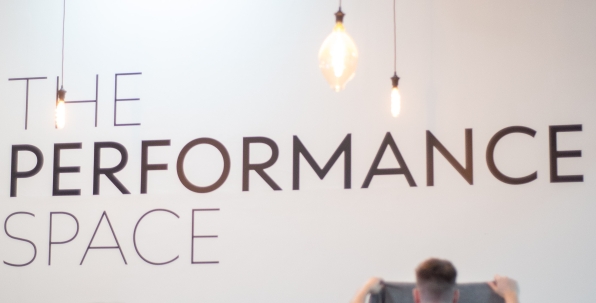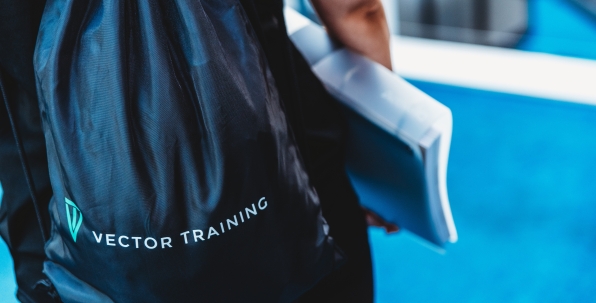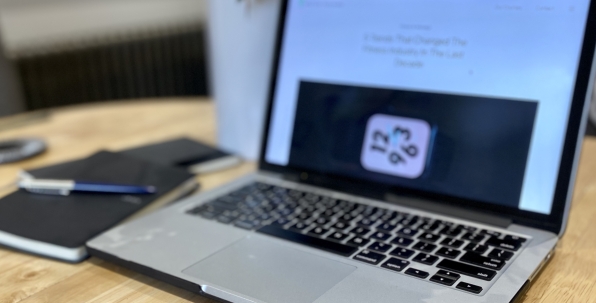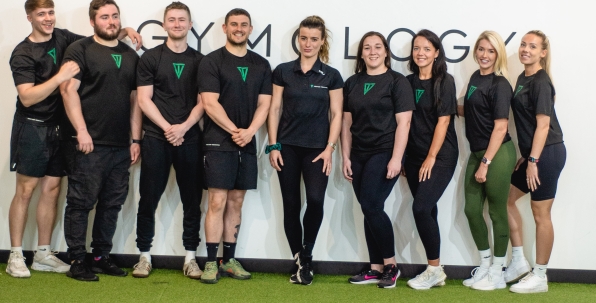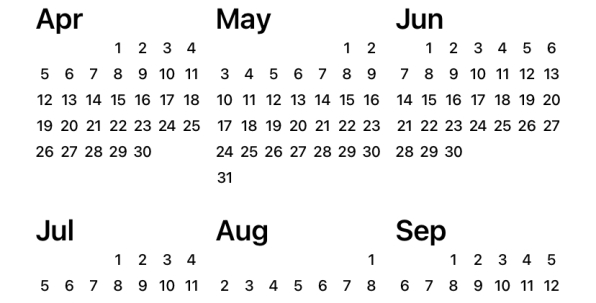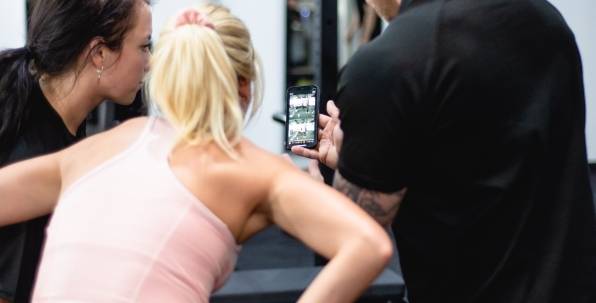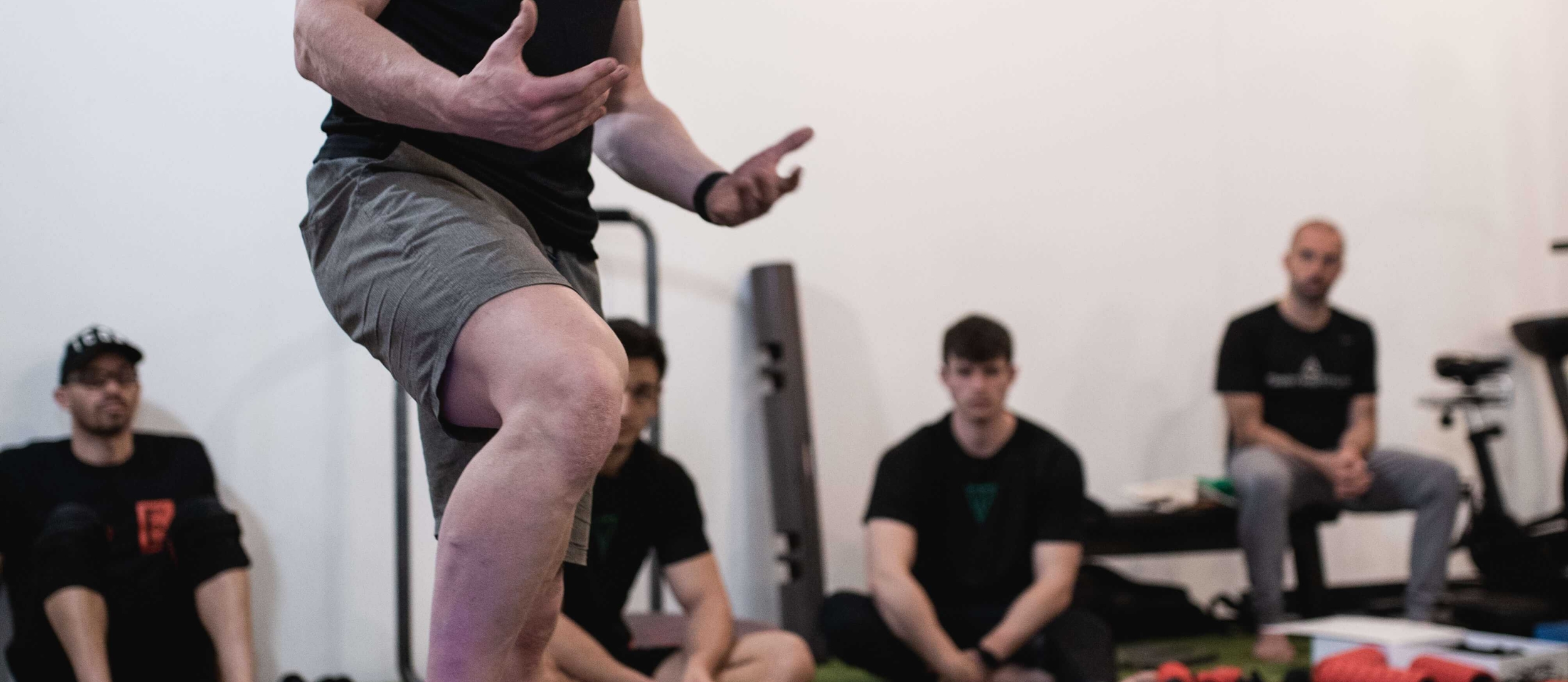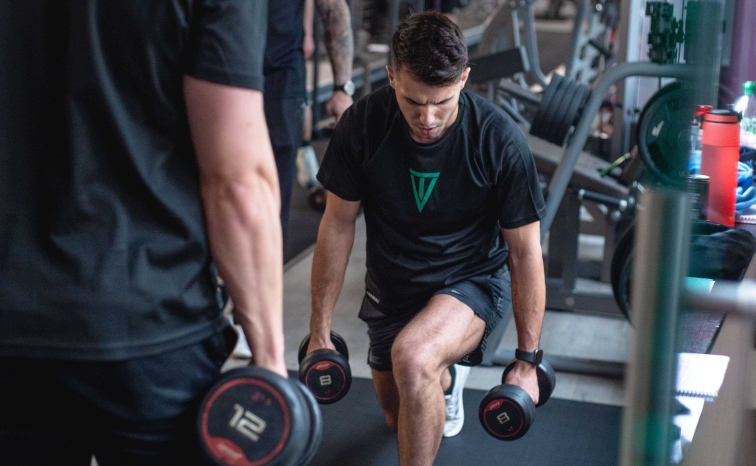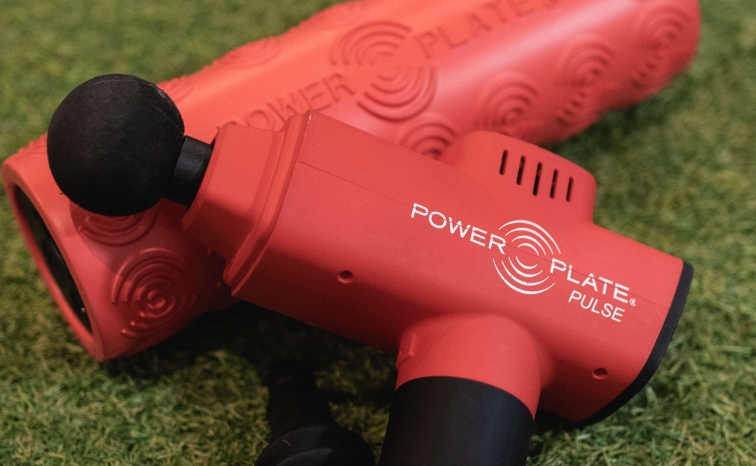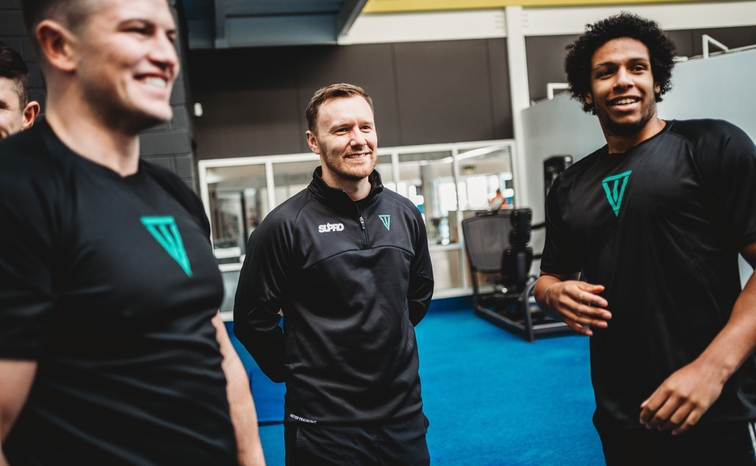What is barefoot training?
Foot strength is like grip strength, both are important, both can be developed and both should be focused on.
Grip strength is a popular metric that is often measured and trained, for good reason. Grip strength allows us to carry, lift, hang, climb and shows up in many of the human things we do.
Foot strength is often neglected, rarely discussed (although becoming more relevant and researched) and hardly ever prioritised in training programmes, often because there is no common way of measuring it.
Just like our hands, our feet are heavily involved in many of the human things we do. Walking, running, balancing, pushing, pulling, carrying, lifting etc, yet our feet are often tucked away in cushioned, rigid shoes and forgotten about.
Think of your feet as the Swiss Army Knife of the body—beautifully designed, compact, and multifunctional. Human feet have developed anatomical features that allow shock absorption and stability, both functions and anatomy that differentiate our feet from those of other primates. The most obvious of these differences are enlarged heels, adducted great toes, and an arched arrangement to the structure of the whole foot.
The first step to having healthy feet is optimising foot and ankle mobility. With the average adult taking 5,000 steps a day our feet take quite a beating.
Give them the TLC they deserve! Optimising foot strength assists in maintaining arch height, shock absorption, and dynamic balance - all of which are necessary for walking
And for the purpose of this article, barefoot training is exercising without footwear or minimalist footwear, dependant on the environment.
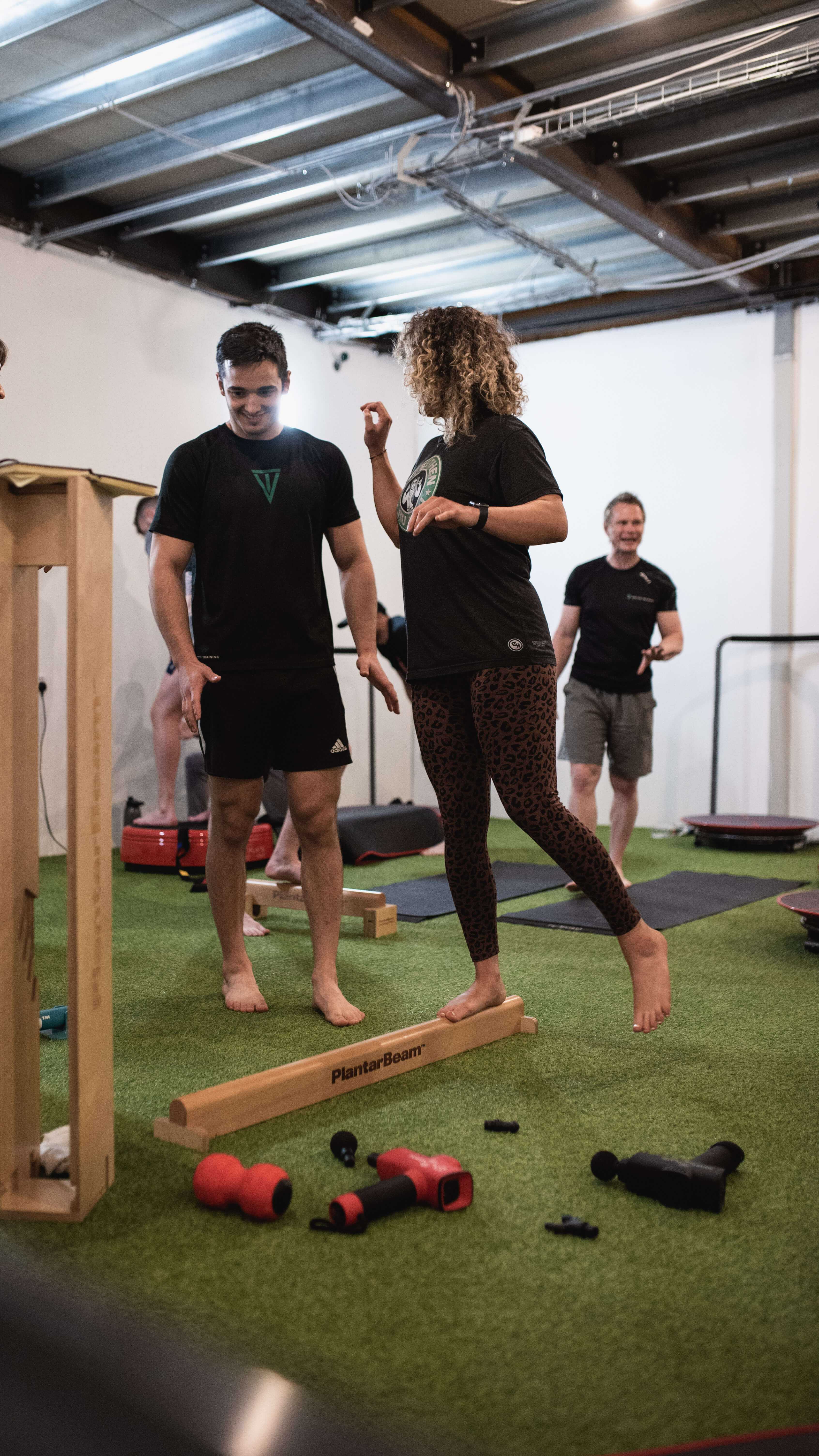
5 reasons to go barefoot
1. Increase foot strength
Going barefoot strengthens the intrinsic muscles of the foot and ankle. Foot strength can be increased by exercising in minimal footwear for healthy adults (Goldmann, Potthast, & Bruggemann, 2013; Miller, Whitcome, Lieberman, Norton, & Dyer, 2014). Therefore, increasing intrinsic foot muscle strength would be beneficial, and one way could be footwear.
2. Improve proprioception
Going barefoot improves our proprioception which will improve our balance and movement. Sensory sensitivity is an important component to healthy feet and movement, meaning you need to feel your feet and the ground when you move.
3. Healthier body
Go barefoot for a healthier body. Almost 30% of the joints in our body are in our feet. Our feet are the base of support for our whole body. Often knee and back pain can stem from improper foot mechanics. Artificial support from shoes can place unnatural pressure on the knees, spine and neck. Our foot mechanics affect our whole body.
4. Stronger arches
Going barefoot can give you stronger arches, let your arch muscles develop naturally. In nature and architecture one of the strongest structures is an arch, rarely do we need to support an already very strong structure.
5. Increase mobility and stability
Going barefoot can increases foot and ankle mobility and stability, giving you a stronger more efficient base to move from and a reduced risk of injury.
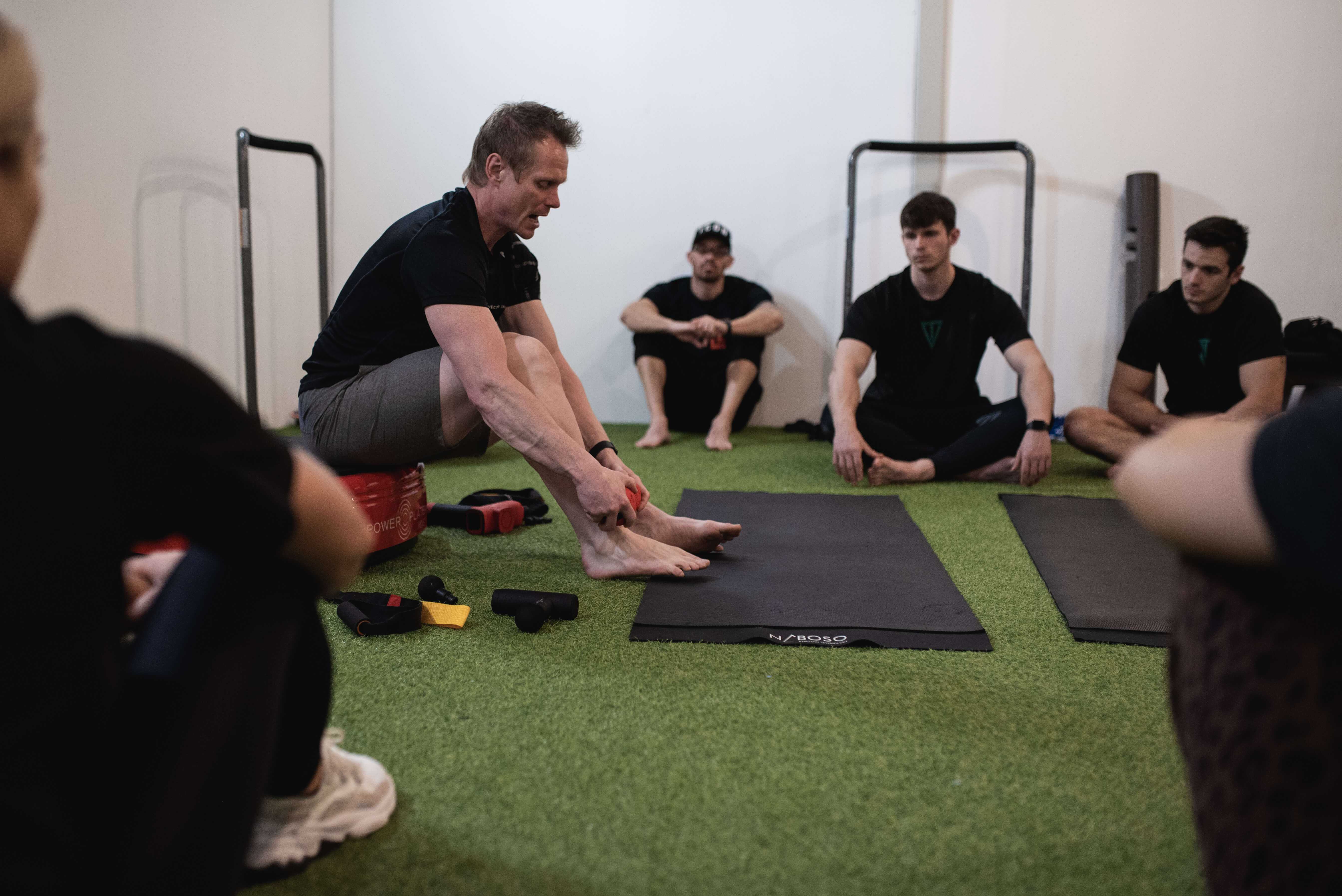
Being barefoot is natural
Being barefoot is a natural way of being for us. Most of us learned how to walk barefoot and would have spent lots of time as a child barefoot.
We have grown accustomed to shoes however it is such a natural feeling to go shoeless and feels so liberating when we do.
More importantly, training and walking barefoot is something simple that we can do to improve the health of our feet as well as our whole body.
Want to learn how going barefoot can help you and your clients?
Experience how barefoot training can help improve the performances of your clients through our 1 day CIMSPA endorsed Barefoot Conditioning Workshop.
Our Barefoot Conditioning Workshop is delivered across the UK.

